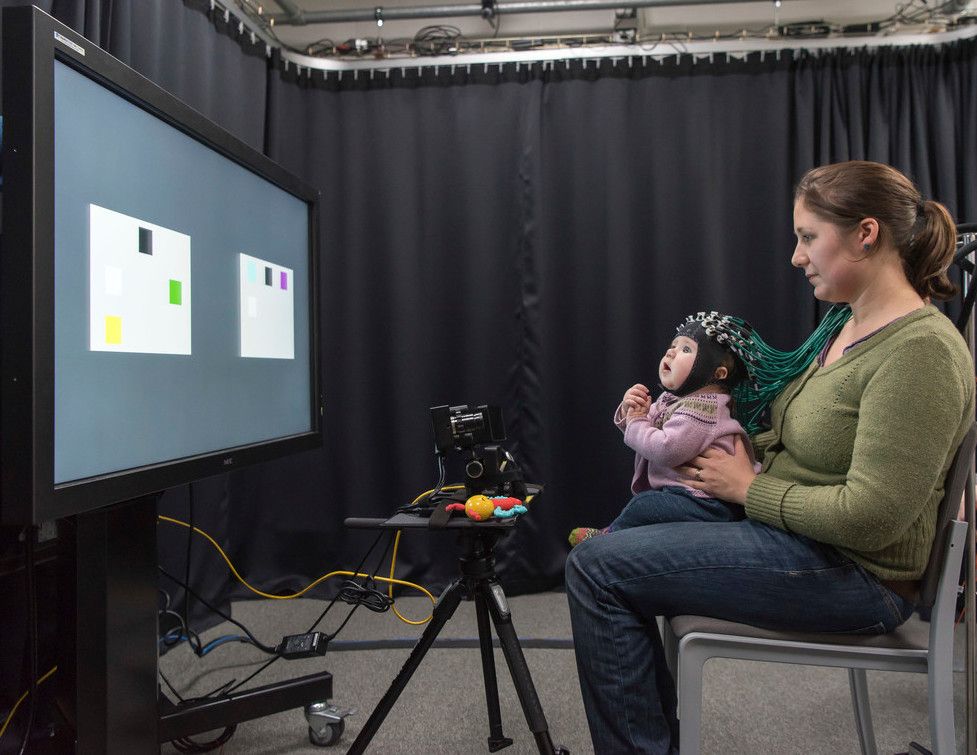Probing the Neural Basis of Visual Working Memory in Early Development
During the first year of life, brain size doubles as functional brain networks are formed, creating new behavioural, cognitive, and social skills. Significant adversity including poverty can have a major impact on these emerging brain networks, yielding deficits that extend into adulthood.
The goal of this project is to assess the impact of significant adversity on the emergence of a key functional brain network in early development—the network that underlies visual working memory (VWM)—and to compare brain development between typically developing children in the UK and children experiencing adversity in rural India. The project involves a host of innovative technologies including brain imaging. Our hope is that the information obtained from the UK project and the INDIA project will lead to the design of assessment tools that could ultimately help children who are considered to be at risk for cognitive delays.

Our research is funded by:
National Institutes of Health
Publications:
Processing pipeline for image reconstructed fNIRS analysis using both MRI templates and individual anatomy. Samuel Forbes, Sobanawartiny Wijeakumar, Adam Eggebrecht, Vincent Magnotta, John Spencer. Neurophotonics Vol. 8, Issue 2 (Jun 2021)
